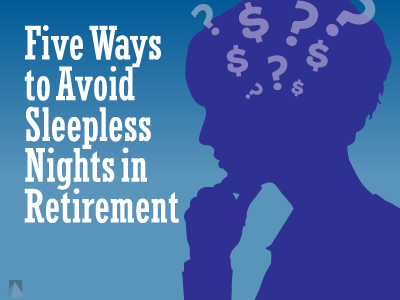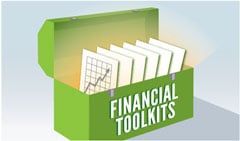
Financial headlines can be hazardous to your sleep health in retirement. It is easy to get the jitters and start worrying that you should do something, anything but stay on your current financial course. Yet it rarely makes sense to panic and sell your holdings. Over the years I have developed a list of five ways to help you avoid the sleepless nights in retirement that financial headlines can bring.
1. Take a deep breath.
Remind yourself getting the jitters won’t help, and go do something else for a few hours. Chances are the market roller coaster will be in a different place when you check again and you will be glad you didn’t act impulsively. Instead of watching the financial news or conducting another Internet search, try some exercise, an absorbing movie, or whatever allows your brain to calm escalating emotions.
2. Call your financial advisor.
You can tell her/him that you are freaking out. When the headlines are dramatic, I assure you that yours will not be the first such call. Listen to your advisor’s soothing reminder that your retirement portfolio was designed to weather severe short-term volatility and maintain your standard of living over time. Hear the counsel against acting impetuously based on short-term panic attacks so you do not erode your capital base by selling at the lows of the market. If you manage your own finances, consider hiring a professional to get a second opinion.
3. Remember it’s unlikely all your assets are invested in stocks.
Your less risky investments are likely to include cash, short-term Treasuries and insurance coverage that can buffer sudden shocks. You may have fretted in the past (as many people do) that along with your home, these assets were too conservative with their long-term expected return of roughly zero after inflation. But now you can enjoy the calming feeling that, unlike stocks and most bonds, they pose less market risk.
4. Review your plan.
If you become convinced your portfolio mix of safety and growth investments no longer suits your risk tolerance, then lay out the timing for gradual changes. Don’t have a written plan? Do it now while you’re pacing the floor at night. Multiple studies have shown that having a written retirement income plan, in addition to working with a financial advisor, are two key factors linked to reduced stress, financial confidence and satisfaction in retirement.
5. Stay the course (after confirming you’re on the right course)
When it comes to the roller coaster ride that is the stock market, “stay the course” is the best advice—provided you know you’re on the right course. Whether you have worked with your financial advisor to map out a strategy based on your risk tolerance profile, or you’ve done the hard work on your own, stock market bumps shouldn’t give you any more sleepless nights.
Resources
Retirement Income Strategies and Expectations (RISE) study (Franklin Templeton)
Voices of Experience Survey (TIAA)
---
Heidi Clute, CFP® of Clute Wealth Management in South Burlington, VT and Plattsburgh, NY, an independent firm and registered investment advisor that provides strategic financial and investment planning for individuals and small businesses in the Lake Champlain Valley region. The opinions voiced in this material are for general information only and not intended to provide specific advice or recommendations. For a list of states in which we are registered to do business, please visit www.clutewealthmanagement.com.
Securities offered through LPL Financial, member FINRA/SIPC. Clute Wealth Management and LPL are separate entities
All investing involves risk including loss of principal. No strategy assures success or protects against loss. There is no guarantee that a diversified portfolio will enhance overall returns or outperform a non-diversified portfolio. Diversification does not protect against market risk.



